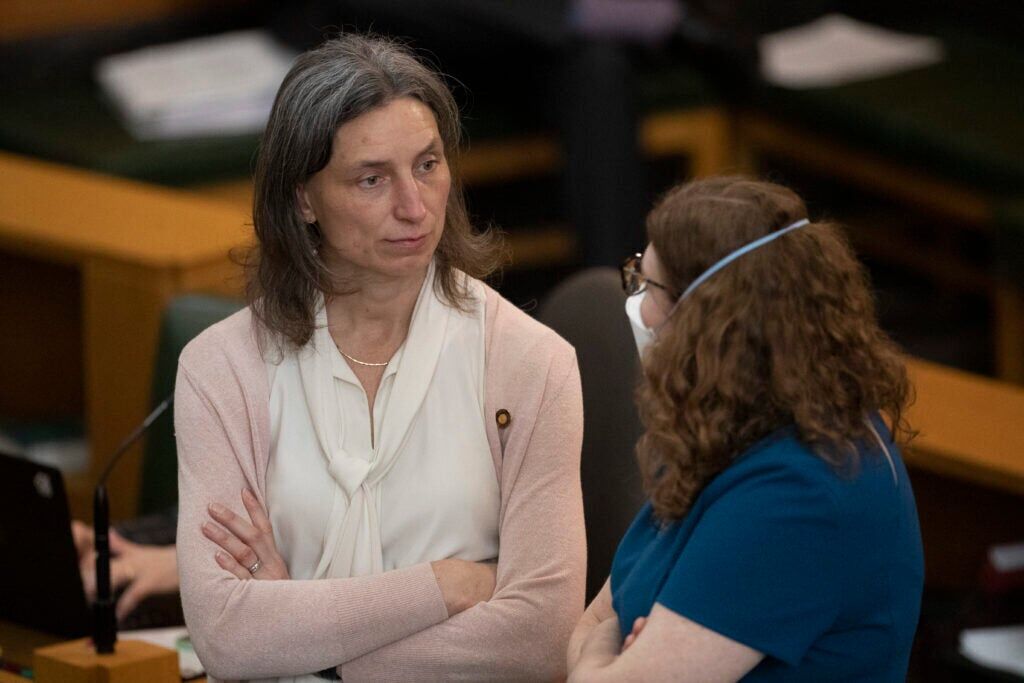Oregon Rep. Maxine Dexter of Portland resigns from state Legislature
Published 12:30 pm Wednesday, July 31, 2024

- Rep. Maxine Dexter, D-Portland, left, speaks with Rep. Julie Fahey, D-Eugene, on the House floor at the Oregon State Capitol in Salem on Feb. 28, 2023.
State Rep. Maxine Dexter, a Portland Democrat, will serve her last day as a legislator on Aug. 30 to focus on her run for Congress.
After four years representing House District 33, which covers northwest and downtown Portland, Dexter appears poised to represent Oregon’s 3rd Congressional District. She won the competitive Democratic primary in May to replace retiring U.S. Rep. Earl Blumenauer, who’s served the district for nearly three decades. Though Dexter faces Republican Joanna Harbour, an Estacada lawyer, in November, she’s all but assured to win in the district that has more than three times the number of registered Democrats as Republicans.
Trending
Dexter said in a news release Wednesday she wanted to leave as much time as possible for her legislative successor to get ready before the next session begins Jan. 21.
“I want to provide as much of an on-ramp as I can for the next representative of House District 33, and allow them to hire staff, prepare their bills and be ready to hit the ground running,” she said. “Since taking office, we have made huge investments to support Oregonians. I am immensely proud of the work this body has done.”
Under Oregon law, the county where the district is located picks a replacement while working with a party precinct member, who recommends three to five names. That process will start 30 days after her resignation becomes official.
Dexter is a pulmonary and critical care doctor who began her political career during the COVID-19 pandemic. She was first appointed to the Legislature in June 2020, following the death of former Rep. Mitch Greenlick.
Since then, she’s chaired the House Committee on COVID-19 Response and the House Housing and Homelessness Committee, leading efforts in 2023 to pass a $200 million spending package for housing and homelessness. That same year she championed a new opioid harm reduction law that made naloxone — a life-saving medication that stops overdoses — more available in public schools and other public buildings.





